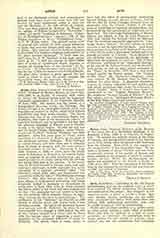

Acton, JOHN FRANCIS EDWARD, sixth Baronet of the name, son of a Shropshire physician, b. at Besancon, June 3, 1736; d. at Palermo, August 12, 1811. He entered the military service of the Duke of Tuscany, and distinguished himself in the Algerine war in 1775, during which he rescued 4,000 Spaniards from the Corsairs. Since 1779 he was engaged in the reorganization of the Neapolitan navy. He became a favorite of Queen Caroline and was made successively minister of the marine, of finance, and prime minister of the kingdom to which he rendered notable services. When the Parthenopeian Republic was established by the French at Naples in 1798, Acton fled. After the restoration of the Bourbons he was temporarily reinstated, but was removed in 1806, and retired to Palermo.
THOMAS J. SHAHAN

